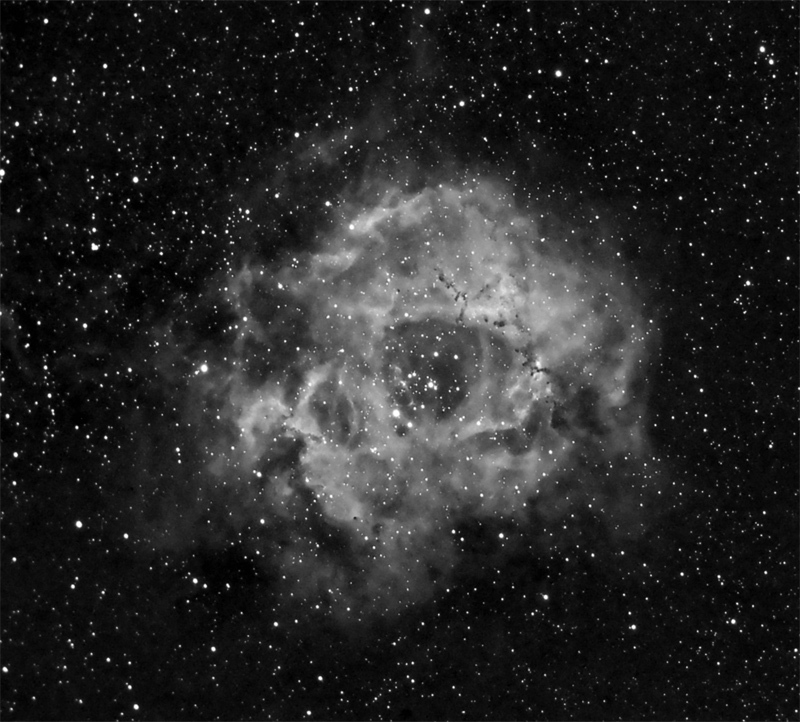Moon? What Moon? (Ha NGC7000 + IC5076, Ha NGC2244 Rosette Nebula)
Well, what can I say… great sky last night, apart from that bl__dy great moon. I didnt quite realise just how bright is was goingt o be until I went outside, so I had to quickly change targets and process. The only way to image last night was to use narrowband filters, something I have never had to use before. There are a few targets that are rapidly disappering into the west for this year, so I chose to start with something big and bright…. but was a bit wary because one shot colour CCDs have a reputation for not being so great for narrow band imaging. Both images are a little noisey… partly due to the moon, but also due to the short sequence runs and low sub count.
As a side note, it was incredibly cold last night. In fact, as I was standing on the patio, looking up at the sky, I didnt notice I was actually standing in a puddle from rain earlier in the day. I must have stood there for 10 minutes or so, totally stationary…. when I tried to move, I discovered to my surprise that the puddle had frozen solid, with my boots still in it! Well, it made me laugh 🙂
(Note: These images have been updated since I first posted this article)
- NGC7000 North American Nebula + IC5076 Pelican Nebula
OTA: William Optics ZenithStar 66 SD + 0.8 FR/FF
Guiding: NS8GPS @ f/10 + DSI-C + PHD
Imaging: QHY8 + MaximDL, 6 x 900s
Stacked: DeepSkyStacker
Post Process: ImagesPlus + PSCS2 + Noel Carboni’s AstroTools
(Had to stop the sequence as it slipped slowly behind the rooftop of a nearby house)
(Click on image for larger version)
- NGC2244 Rosette Nebula
OTA: William Optics ZenithStar 66 SD + 0.8 FR/FF
Guiding: NS8GPS @ f/10 + DSI-C + PHD
Imaging: QHY8 + MaximDL, 8 x 900s
Stacked: DeepSkyStacker
Post Process: ImagesPlus + PSCS2 + Noel Carboni’s AstroTools
(Thin whispy clouds stopped play)
Published in Practical Astronomer, January 2008
(Click on image for larger version)
Posted by Steve under Astro | Comments Off on Moon? What Moon? (Ha NGC7000 + IC5076, Ha NGC2244 Rosette Nebula)


